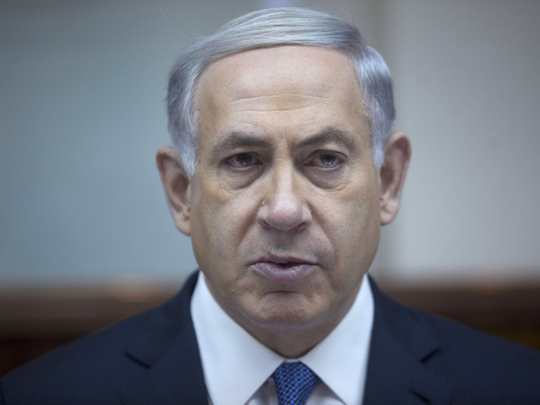
All eyes, especially in the Middle East, will be focused next week on the American Israel Public Affairs Committee (Aipac), the most influential pro-Israel lobby in the United States. Aipac will be holding its annual conference, as always, near the US Congress, led by the triumphant Republican Party, which now controls its two legislative branches — the House of Representatives and the Senate.
But the main attraction will be the address of Israeli Prime Minister Benjamin Netanyahu, who will be addressing a session of the US Congress next door on March 3, in a bid to derail an anticipated nuclear agreement between Iran and the P5+1, (the US, Russia, China, Britain and France plus Germany). The agreement is at present under negotiation in Europe in the hope that it can be concluded next month but “the extension is through the end of June”.
The unfortunate presence in Washington this coming weekend of the Israeli prime minister, who is bound to behave as a spoiler, may turn the political situation between the US and Israel upside down since Netanyahu and a few of his colleagues are hoping his performance will improve his Likud party’s chances in the Israeli election on March 17. A prominent Israeli commentator, Akiva Eldar, explained this week that “one is allowed to argue that Netanyahu is harming Israel’s ties with the United States, but giving up the Iranian nuclear bomb issue, especially on the eve of elections, is tantamount to political suicide”.
On the other hand Isaac Herzog, a strong rival of Netanyahu and leader of the Zionist Union party declared: “No Isreli leader will ever accept a nuclear Iran. However, [there is a] way to deal with it – that’s where I beg to differ with Prime Minister Netanyahu. I believe in open and frank discussion with the US administration. I believe in open and frank discussions with the P5+1 leadership. And I think Netanyahu’s speech in Washington is a mistake.”
What has been confusing about the US position is the apparent refusal to take serious steps to tame Netanyahu despite assurances that the Obama administration has no intention of boycotting the upcoming Aipac convention. The White House, so far, has not revealed the name of the administration’s representative who will be attending the pro-Israel lobby’s simultaneous conference, which will also be addressed by the Israeli prime minister. Associated Press, quoted by a liberal Israeli newspaper, said the Obama administration was mulling ways “to undercut Netanyahu’s… message that a potential nuclear deal with Iran is bad for Israel and the world”.
Record colony construction
Whatever steps Obama may be considering, reportedly an interview with a prominent journalist or the appearance of senior US officials in the Sunday talk shows on the eve of the Congressional session with Netanyahu, the Obama administration has a lot of ammunition to sidetrack the Israeli prime minister’s bankrupt policy vis-a-is the Palestinians, which is contributing to the state of turmoil in the Middle East. A case in point, the number of homes under construction in Israeli colonies in the occupied West Bank rose last year by 40 per cent, the watchdog organisation Peace Now revealed last Monday. This Israeli group, reported AFP, said the construction of 3,100 “residential units” began last year in the Israeli-occupied West Bank, while 4,485 tenders for illegal construction there and in occupied East Jerusalem neighbourhoods were approved in 2014 — “a record high for at least a decade”.
Peace Now said the monthly average of new homes in Israeli colonies was 460 during Netanyahu’s third term in government, which started on March 18, 2013. It added that over the same period 66 construction projects were launched to build 10,113 homes in 41 colonies. “All these figures prove that Benjamin Netanyahu is doing everything to increase fait accomplis on the ground and make a two-state solution impossible,” Peace Now’s Hagit Ofran declared.
There are dozens of other legal actions that the American president can take, ranging from US financial and military support to legal and political actions that could check Israel’s shocking behaviour and pursuing a peaceful relationship with the countries of the Middle East. This is an opportunity that he should not miss.
Credit: George S. Hishmeh is a Washington-based columnist. He can be contacted at ghishmeh@gulfnews.com.










